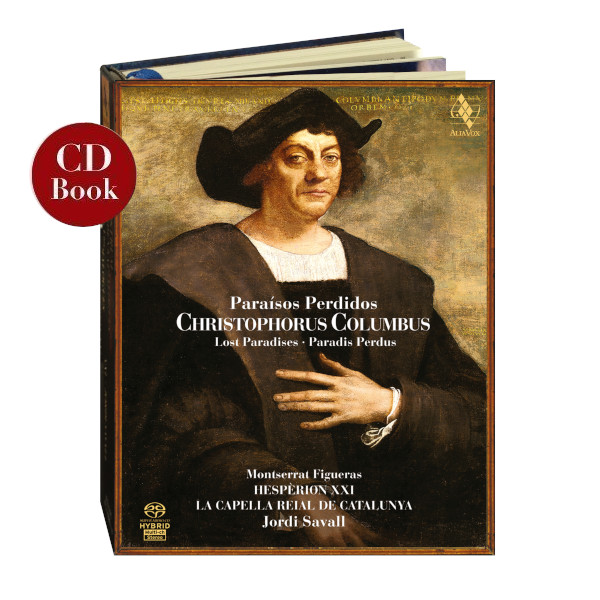CHRISTOPHORUS COLUMBUS
Paraísos Perdidos
Hespèrion XXI, Jordi Savall, La Capella Reial de Catalunya, Montserrat Figueras
32,99€
Ref: AVSA9850
- Hespèrion XXI
- a Capella Reial De Catalunya
- Jordi Savall
“This world would be good if we made good use of it as we should.”
Jorge Manrique (1440-1479)
We are not the sole owners of our past. The geographic space that our culture has occupied over the centuries has contained within it diverse peoples of different cultures and religions, such as the Muslim and Jewish communities in ancient Hesperia. But the Middle Ages, which, like the present day, was an age scarred by religious hatred and incomprehension, saw the decline of the former paradise of Hesperia and its “Three Cultures” where, despite all the intolerance and cruelty, Arabs and Jews lived among us, lived like us, were us. At the close of the 15th century, after the Christian conquest of Granada, they were expelled or forcibly converted to Christianity in compliance with royal decrees. Their departure marked the end of an era, the loss of a possible paradise: events which are decried in the written word, lamented in music, illuminated by memory and dignified by our conscience.
At the same time as Hesperia was being convulsed by these upheavals, an extraordinary figure emerged on the scene: Christopher Columbus, the admiral who in 1492 discovered the New World. Another paradise was about to be transformed: the arrival of the colonists would bring, on the one hand, the destruction and loss of many indigenous American cultures, and on the other, the crystalisation of a social and cultural mestissage that was to bear rich fruits both in the Old and the New World.
+ information in the CD booklet
JORDI SAVALL
Bellaterra, summer 2006







Share